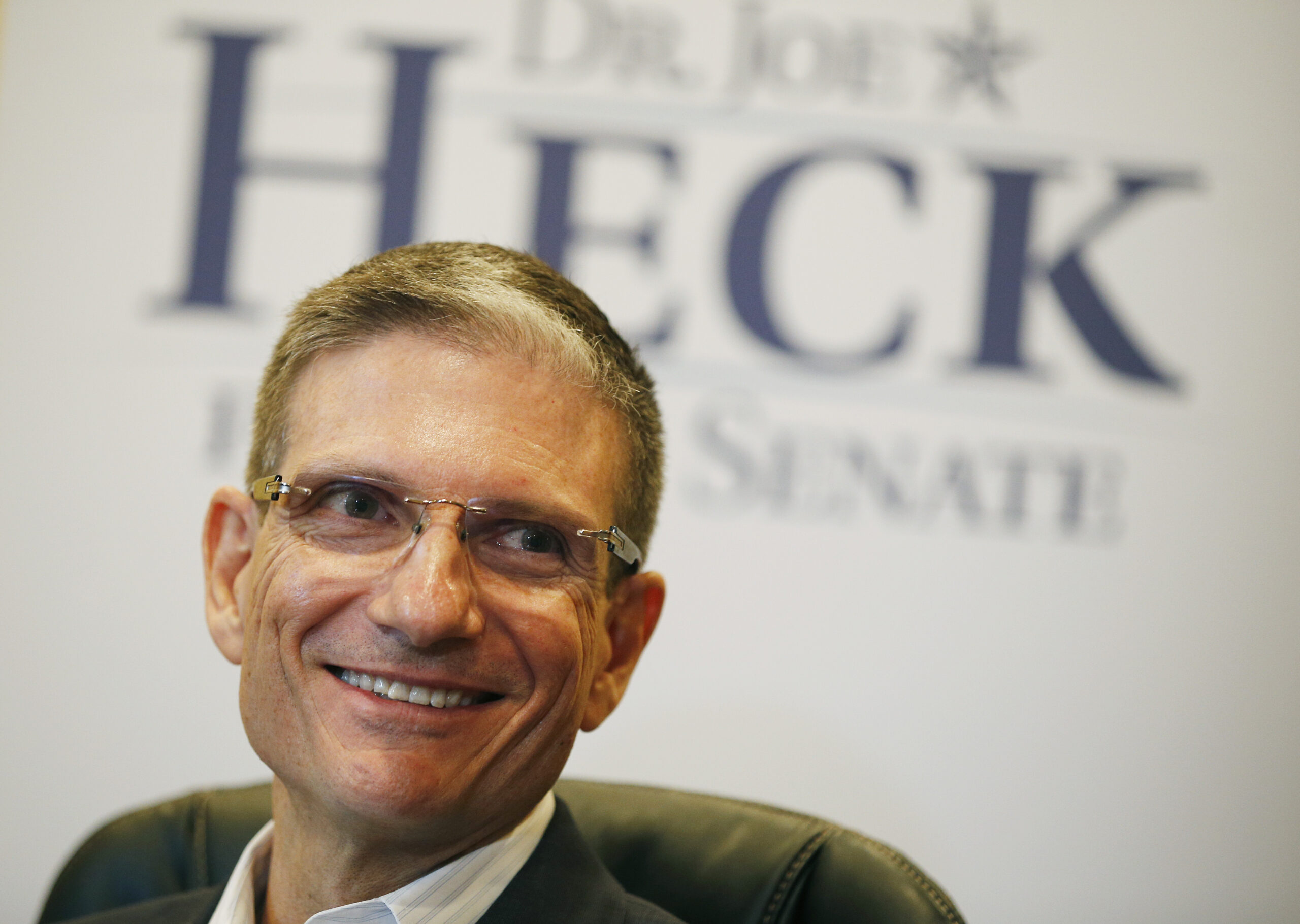Two former Nevada Republican congressmen said Wednesday evening that they have faith in the sanctity of the state’s elections, but that recent changes could increase the public’s distrust in the election system.
Reps. Joe Heck and Jon Porter joined former Rep. Shelley Berkley (D-NV) and Nevada Secretary of State Cisco Aguilar, a Democrat, on a panel that previewed how election integrity discussions may play out this year, with less than 90 days before Election Day.
The roughly hourlong event at UNLV included discussions on political polarization, mail ballots, so-called “ballot harvesting” and foreign interference in elections. About two dozen people attended the event, with some appearing to doubt the security of Nevada’s electoral system.
There is no evidence that widespread election fraud has occurred in Nevada or the rest of the country, despite myriad claims made by former President Donald Trump and other top Republicans. GOP officials have also tamped down their opposition to certain election procedures — particularly voting by mail, which has been endorsed by Trump’s campaign this year — and most Republicans running in this year’s Nevada primaries have stayed away from explicitly campaigning on election integrity.
The panelists agreed that widespread fraud had not taken place in the 2020 presidential election, but Heck and Porter raised concerns about how recent changes to the state’s election system could upend public trust.
“It does raise a lot of concern and suspicion for people for the sheer amount of opportunities for fraud,” Heck said during the panel. “I think one of the areas where people see a great opportunity for fraud is the widespread use of mail-in ballots.”
Nevada lawmakers enacted several election rule changes in 2020 because of the pandemic, including sending mail ballots to all registered voters and allowing ballot harvesting, where people can drop off completed ballots of non-family members. In 2021, the Legislature permanently expanded universal mail-in voting, while allowing voters to opt out of receiving mail ballots.
In an interview after the event, Heck, who represented Congressional District 3 until he lost a 2016 bid for U.S. Senate, commended Aguilar and other state election officials in weeding out fraud in the state.
He also said that as a former member of Congress, he sees his role as informing the public about how — even though new electoral processes could invite opportunities for fraud — there is no evidence of widespread irregularities.
“Yes, there’ll always be opportunity [for fraud],” Heck said. “But what it comes down to is how much actual fraud is really taking place. And I believe that in Nevada, steps are being taken to uphold the integrity of the election.”
Meanwhile, Porter, who represented Congressional District 3 from 2003 to 2009, said he has concerns about ballot harvesting and rules on accepting ballots without a clear postmark.
Porter, who is now a lobbyist, said that his views on election security are largely related to the national environment, rather than Nevada, which he said has done a good job of addressing election security.
“I think Nevada has been so efficient and pragmatic in fixing any loophole, any problems,” Porter said.
Other former Republican officials — including former Nevada Govs. Brian Sandoval and Robert List — have recently formed groups seeking to restore public trust in elections.
Last week, the Nevada Secretary of State’s Office released its second quarterly report on election integrity investigations. The office has received 448 reports of violations so far this year, only two of which were found to be valid. There are 116 cases still open (26 percent), and 317 (70 percent) have been closed with no violation found.
Since 2020, 20 cases have been referred for potential prosecution. The first election fraud report, which was released in April, showed 14 prosecution referrals since 2020.
At Wednesday’s panel, Aguilar defended how the state runs its elections and reiterated his push for more funding for local election offices, many of which also have other responsibilities on top of running their counties’ elections.
“They don’t have all the resources they need,” Aguilar said. “Elections have become so intense and so passionate they’re spending the majority of their time on their elections, and still having to do their other jobs.”
Aguilar also touted the upcoming release of a new top-down voter registration system, which is set to be rolled out Aug. 17, and reminded voters it is their responsibility to maintain accurate registration information so that ballots are mailed to the correct address.

